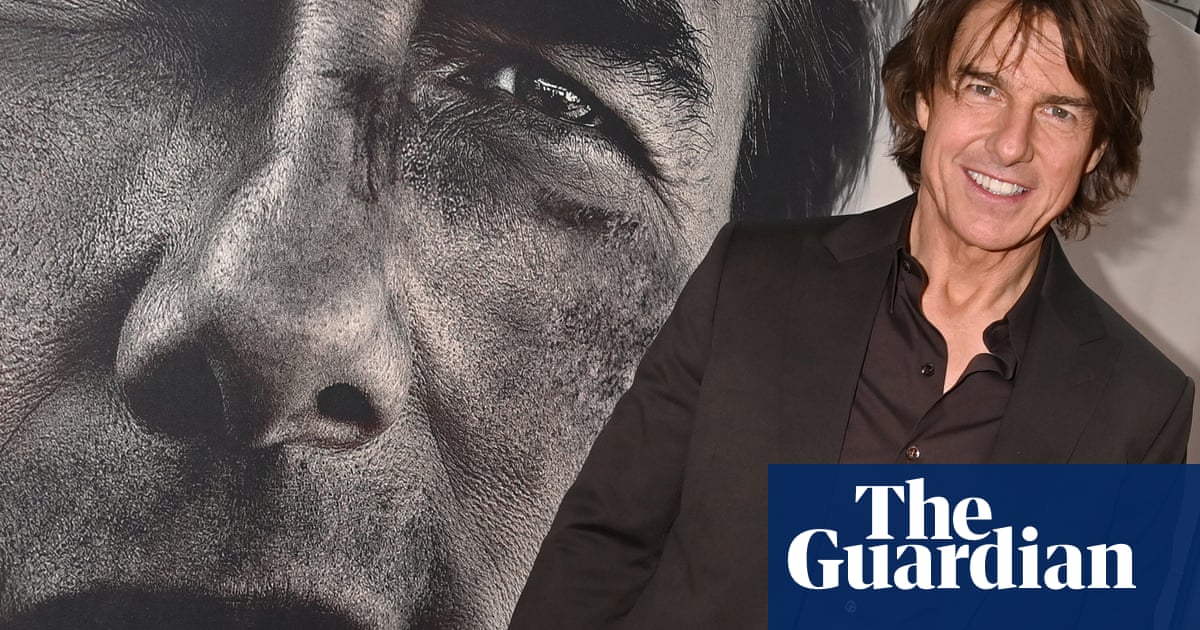Throughout film history, there have been vanishingly few directors whose brand names reach the heights of the movie stars who log time in front of the camera. That’s natural; we see people like Cary Grant, Audrey Hepburn, Paul Newman, Julia Roberts andTom Cruisein movie after movie, sometimes experiencing a love-at-first-sight lightning-strike moment, sometimes developing a relationship over many years, and sometimes a combination of the two. Directors, for the most part, remain hidden, with a select few – Steven Spielberg, Tim Burton, Martin Scorsese – popping through to broader public consciousness, a process that seems to take twice as long. (Martin Scorsese became a commercial prospect roughly 30 years into his career.)
It’s a little surprising, then, that the newest crop of directors reaching for (or in some case, already attaining) brand-name status have become the public faces of saving an imperiled theatrical experience.Christopher Nolanwas out front to an arguably foolhardy degree, lobbying for theaters to reopen and show his planned 2020 summer blockbuster Tenet before Covid vaccines were in place. He was understandably pilloried at the time, though now he’s celebrated for his big-canvas vision to the point where an Imax re-release of Tenet (at a safer time for public health) was a big ticket-seller for Warner Bros and helped inspire a similar reissue of his once-maligned sci-fi epic Interstellar.
Similarly,Ryan Cooglerhas made a play for rarified Nolan-style air as a mainstream but critic-friendly showman with an affinity for gigantic screens. Like Nolan, he put his distinct touch on a massive superhero blockbuster (with Black Panther outgrossing even The Dark Knight, and scoring a best picture nomination to boot) and parlayed that success into a big-budget original; Sinners just became the highest-grossing original movie since the family-friendly cartoon Coco (and could ultimately become the biggest live-action original in the US since Nolan’s Inception). It returned to a handful of elite real-Imax screens for a second round of sold-out shows this past weekend, a month after its initial release. Before release, Coogler made the rounds on social media in a charming video where he patiently explained the different options for seeing his movie, which is available in formats rare (70mm Imax, which is what came back at the weekend) and wide (ultra-widescreen Dolby-certified presentations).
It’s not just directors behind the literal biggest movies coaxing a post-Covid audience back to the theaters. On the awards trail this past winter and spring, newly minted Oscar winner Sean Baker used his spotlight to stump for the theatrical experience, making clear that he makes movies to be seen in theaters, not phones or laptops. Neon, the company that distributed Baker’s film Anora, joins A24 as a marquee indie company that refuses to shorten the theatrical release window down to a token few weeks. Some of their films may hit premium VoD quickly, but they hit subscription streaming months, not days, after their theatrical debuts. The strategy seems to help: four of each company’s 10 biggest hits were released in the past year.
Naturally, this promotion still comes back to a movie star: Tom Cruise, one of the more recognizable faces in the world, has essentially appointed himself brand ambassador for The Movies, even without recording a long-playing theater-chain promo like Nicole Kidman or Vin Diesel. He was photographed masked up in an Imax theater for the original run of Tenet; he was there on social media promoting Sinners, a movie to which he has absolutely no creative connection. The man simply loves the movies as a concept. For Mission: Impossible – The Final Reckoning, Cruise has been making the press rounds talking about the technical marvels of film-making, the drive to give the audience a theater-worthy experience and, well, all of the usual talking points he hits when flogging his spectacular action pictures. He was adamant that Top Gun: Maverick avoid either the fate of Tenet (released to barely open theaters where it couldn’t attract a real crowd) or the countless movies sent straight to streaming (which, it should be noted, did provide new entertainment for tons of people stuck at home during a scary and uncertain time).
The involvement of Cruise’s cult-like devotion underlines how these Champions of Cinema sometimes seem to run in parallel to the music world’s digitally enabled stan armies. There’s a sense that if Nolan says “my movie should be seen in Imax”, a certain segment of ticket-buyers will dutifully sell out the theater as soon as possible. Coogler, perhaps figuring that it would be hard to sell his movie as “best” in a format that only a dozen theaters can actually play, was further-reaching in his social media video, but the message was similar: go out, get excited and buy those tickets. As such, it’s possible to read a little bit of discomfiting Cruise-style messianic fervor into these campaigns, just as it’s a little unnerving to know that some Taylor Swift fans will spring for $400 tickets, buy half a dozen different-colored vinyl LPs of an album they already own, or swarm perceived enemies online, all in order to pledge fealty to their pop master.
Is it just cinephile bias (and its attendant stereotypical maleness) that makes the Champions of Cinema stuff seem more wholesome? Maybe. But at a time when Donald Trump appoints elderly has-beens as “ambassadors” to Hollywood, Nolan, Coogler, Baker and even the nearly senior-citizen-age Cruise seem more plugged in to how to wow an audience, rather than angrily berate the existence of international productions (and in Mel Gibson’s case, cut deals to carve out an exception for whatever movie he wants to make). There’s also something a little unnerving in that what amounts to industrial-strength straight-to-the-public capitalist lobbying feels purer and easier to believe in than countless political campaigns. The idea of movie stars and prestigious film-makers has been under corporate attack by franchise ubiquity over the past decade-plus. Maybe collectible, fan-club auteurism is cinema’s best shot at wresting itself back from the brands.
